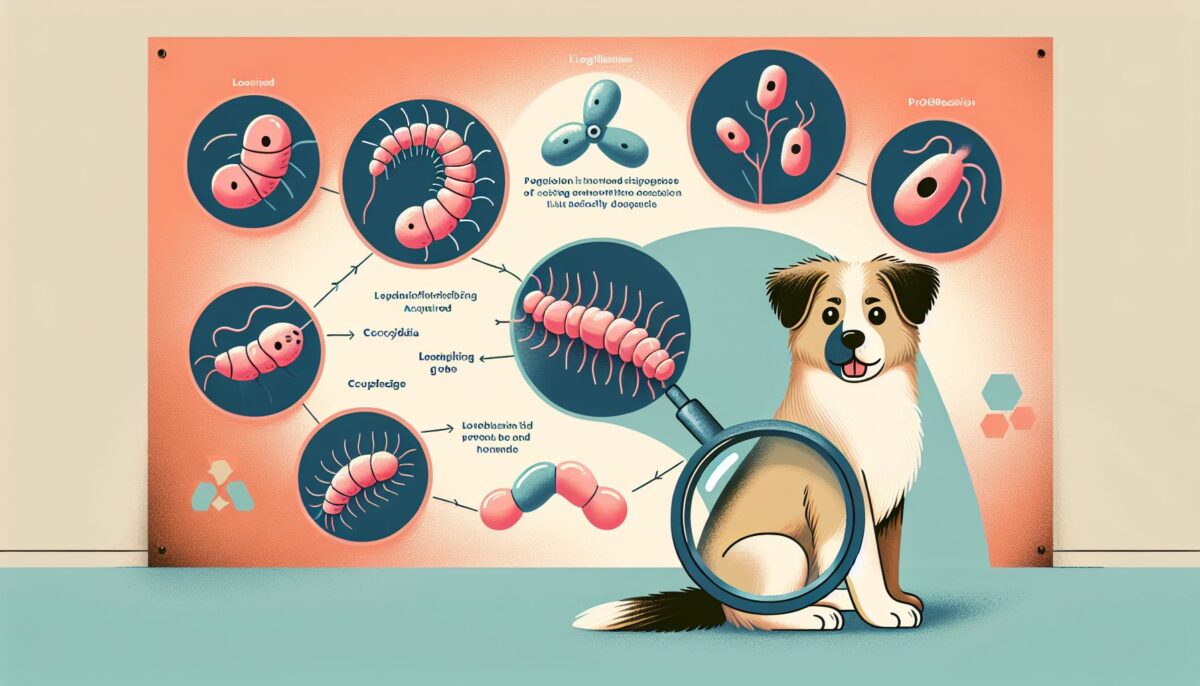As dog owners, we always want to make sure our furry friends are happy and healthy. One common health issue that can affect dogs, especially puppies, is coccidia. Coccidia are tiny parasites that can cause diarrhea and other gastrointestinal problems in dogs. In this article, we will discuss what coccidia is, how dogs can get it, and what you can do to treat and prevent it.
What is Coccidia?
Coccidia are single-celled parasites that infect the gastrointestinal tract of dogs. These parasites can be found in the environment, such as in soil, feces, and water, and can be easily transmitted to other dogs. Puppies are particularly susceptible to coccidia because their immune systems are not fully developed.
How Do Dogs Get Coccidia?
Dogs can get coccidia by ingesting the oocysts (eggs) of the parasites. This can happen through contact with contaminated soil or feces, or by drinking contaminated water. Once ingested, the parasites multiply in the intestines and can cause symptoms such as diarrhea, dehydration, and weight loss.
Symptoms of Coccidia in Dogs
If your dog has coccidia, you may notice symptoms such as:
- Diarrhea (which may be bloody)
- Dehydration
- Weight loss
- Lethargy
- Vomiting
If you notice any of these symptoms in your dog, it is important to take them to the vet for a proper diagnosis and treatment.
Treating Coccidia in Dogs
The good news is that coccidia can be treated with medication prescribed by your veterinarian. The most common treatment for coccidia is a medication called sulfadimethoxine, which helps to eliminate the parasites from your dog’s system. It is important to follow your vet’s instructions for giving the medication and to continue the treatment for the full course, even if your dog’s symptoms improve.
In addition to medication, it is also important to keep your dog clean and dry to prevent the spread of coccidia. Wash your dog’s bedding regularly, clean up any feces in your yard promptly, and avoid letting your dog drink from contaminated water sources.
Preventing Coccidia in Dogs
To prevent coccidia in your dog, there are several steps you can take:
- Keep your dog’s living area clean and sanitary
- Avoid letting your dog come into contact with feces from other animals
- Make sure your dog has access to clean, fresh water
- Consult your vet about preventive medications for coccidia
By taking these preventive measures, you can help protect your dog from coccidia and other gastrointestinal parasites.
Conclusion
Coccidia is a common parasite that can affect dogs, especially puppies. By being aware of the symptoms of coccidia and taking preventive measures, you can help keep your dog healthy and happy. If you suspect that your dog has coccidia, be sure to consult your vet for a proper diagnosis and treatment. Remember, early detection and treatment are key to helping your dog recover from coccidia.
